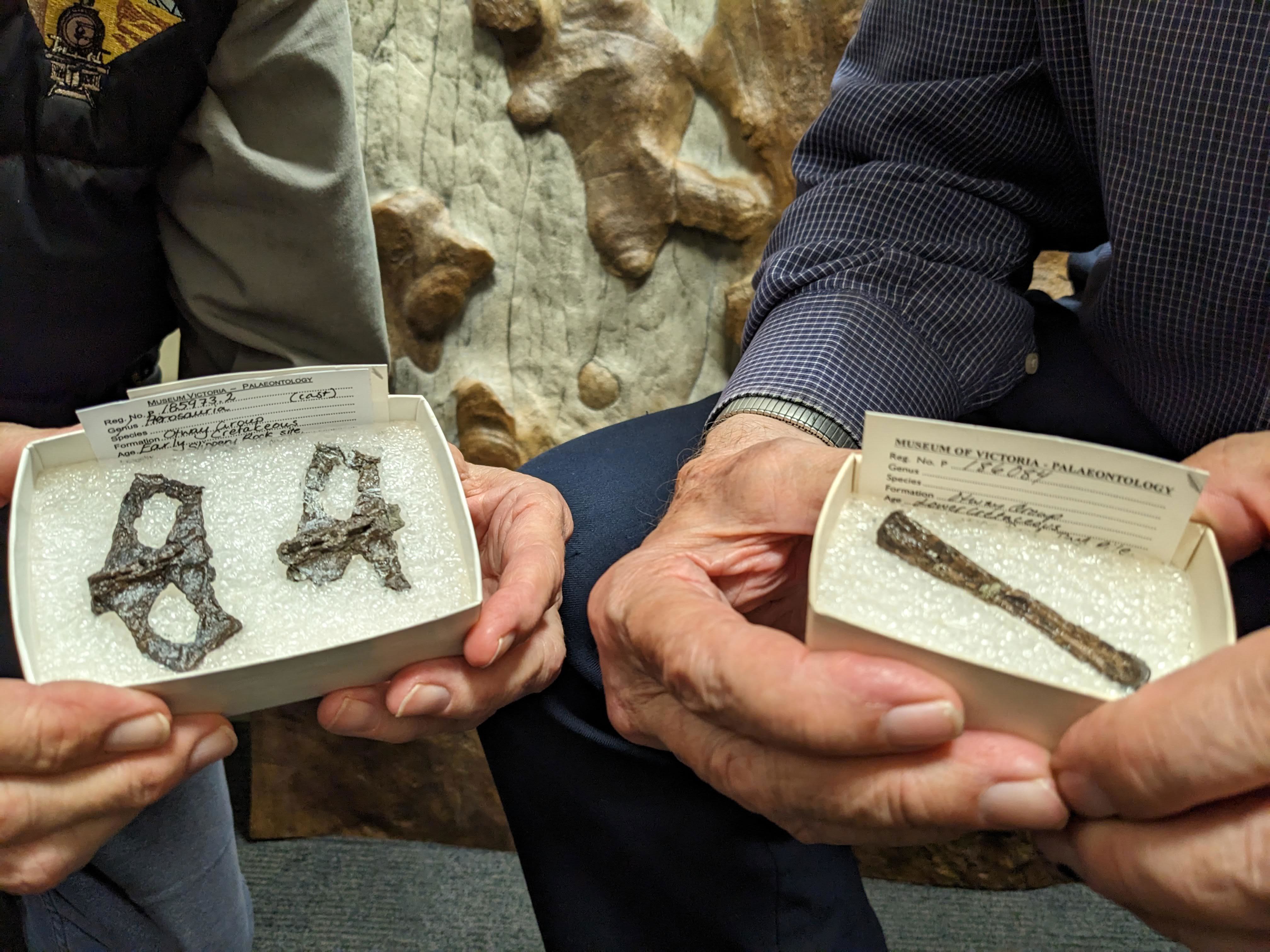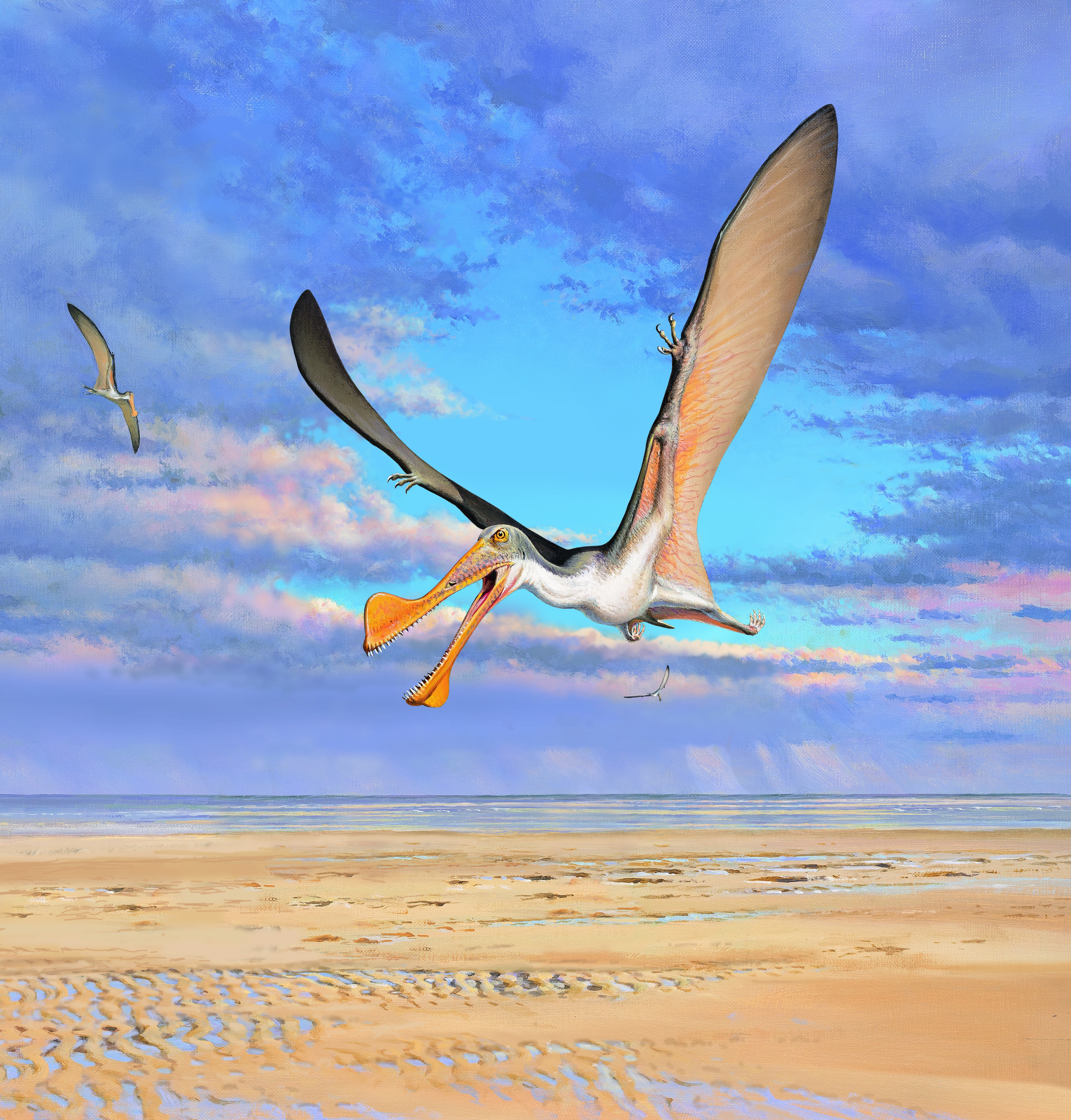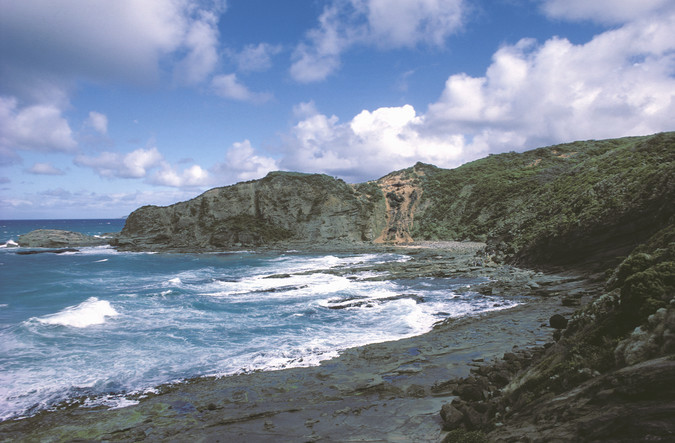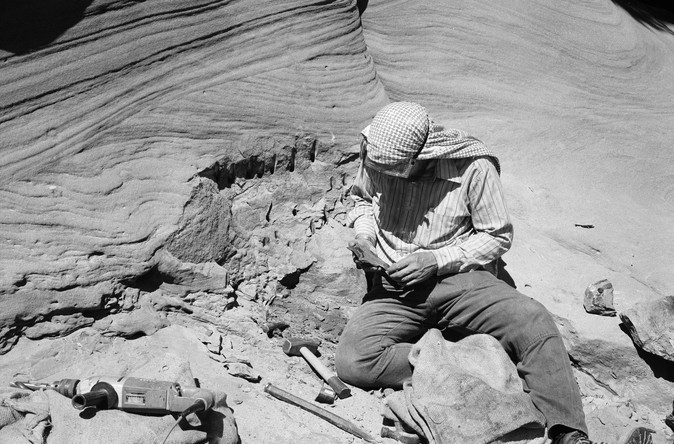Bones found on a seaside cliff in south-east Victoria decades ago once belonged to an ancient flying reptile, and are the oldest of their kind ever found in Australia.
A newly-published study concluded the bones date back 107 million years ago, a time when pterosaurs – the earliest vertebrates known to evolve powered flight – dominated the skies.
The remains were found at Dinosaur Cove in the late 1980s by a team from Museums Victoria Research Institute, led by Dr Tom Rich and Professor Pat Vickers-Rich, and confirm the existence of the first ever Australian juvenile pterosaur.
READ MORE: Snake season is coming to an end. But where do the reptiles actually go?
At the time, the duo believed the bones belonged to two different individuals: a partial pelvis bone belonged to a pterosaur with a wingspan of more than two metres, and a small wing bone belonged to the juvenile pterosaur, the first ever reported in Australia.
Lead researcher and PhD student Adele Pentland, from Curtin's School of Earth and Planetary Sciences, confirmed the findings after analysing the bones.
She said the remains are extremely rare and provide an invaluable insight into Australia's ancient wildlife.
READ MORE: One of Australia's only active volcanoes erupts
"To have concrete evidence that these are indeed pterosaurs and they are the oldest in Australia and were living in a very unique time was a bit of a relief," she told 9news.com.au, explaining pterosaurs were close cousins of the dinosaurs.
"Pterosaurs are really rare compared to dinosaurs because their bones were hollow, which was an adaptation that helped them fly.
"But as you can imagine hollow bones can get broken very easily, before and after they get fossilised. They're so fragile.
"If you grabbed all the bones (found in Australia) together you could probably fit them in a large display cupboard."
READ MORE: Scientists have found new 'zombie viruses', should we be worried?
To date, only four pterosaur species have been named in Australia – however Pentland said there are more than 100 known species that once glided around the globe.
The researcher explained the fossil-bearing coastal site where the bones were found would have looked vastly different in the Cretaceous Period, when the animals lived.
"When these animals were alive Victoria was at a really high paleolatitude, it was about 75 degrees south, so within the polar circle," Pentland said.
"There would have been months of continual darkness.
"Based on the fossil plants we know it was a temperate forest with conifers and some angiosperms (flowering plants) but not a lot, and ginkgo, which were native at the time.
"It was a lush forest."
Rich welcomes the findings after the hard work that was done at Dinosaur Cove.
"These two fossils were the outcome of a labour-intensive effort by more than 100 volunteers over a decade," he said.
"That effort involved excavating more than 60 metres of tunnel where the two fossils were found in a seaside cliff."
READ MORE: What is behind this NSW lake's great disappearing act?
Pentland added pterosaurs hold a unique fascination for her as they are so "weird and wonderful".
"Some had wingspans conservatively of 10-metres," Pentland said.
"If I could travel back in time to see them I think it would be absolutely breath-taking.
"They flew millions of years before birds took to the skies."
The bones are destined for public display at Melbourne Museum's Research Institute Gallery.
Sign up here to receive our daily newsletters and breaking news alerts, sent straight to your inbox.







